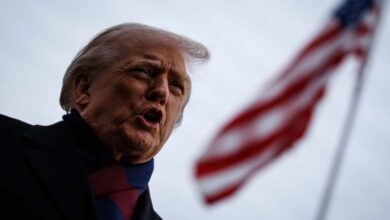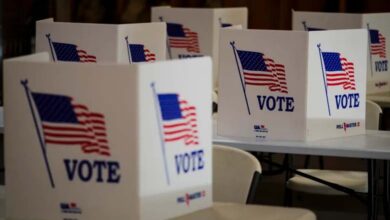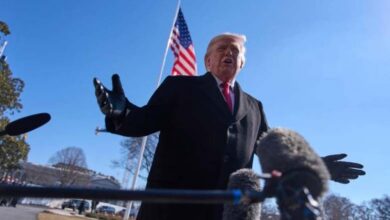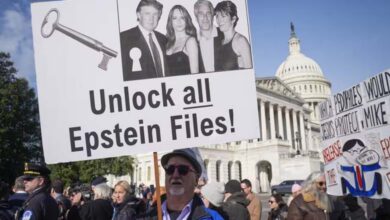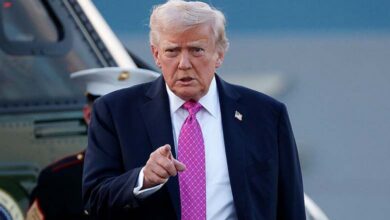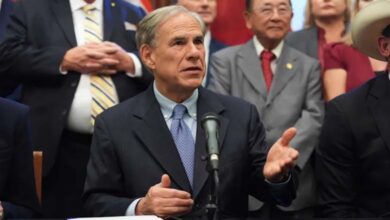Trump threatens to use it: What is the Insurrection Act?
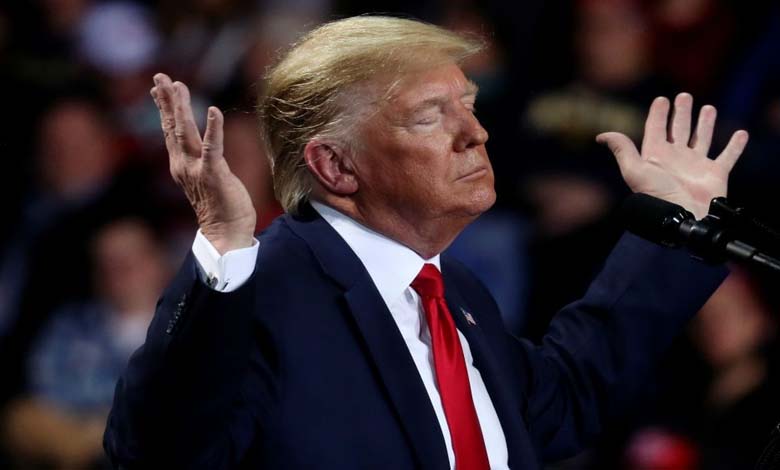
In the United States, the military is generally prohibited from intervening in domestic affairs. However, President Donald Trump has repeatedly refused to rule out invoking the “Insurrection Act,” a law that grants him broad powers to deploy the armed forces within the country.
-
Trump’s Plan and Hamas’s Response: Points of Convergence and Divergence
-
Gaza Residents Back Trump’s Plan and Shout at Hamas: Enough
“Well, it has been used before,” Trump told reporters this week, adding, “We want safe cities.”
Earlier in the week, the president threatened to activate the law, which authorizes him to deploy federal troops to suppress violent uprisings—particularly in cities led by his Democratic rivals.
Trump had signed an executive order to send 300 National Guard troops to Chicago, Illinois’ largest city, to “protect federal personnel and property.”
-
Trump’s Plan for Gaza: Hamas Leader Reveals Timeline for Movement’s Response
-
Trump’s Deadline for Hamas Nears Its End… Gaza’s Displaced Caught Between Hardship and the Inability to Escape
However, on Thursday, a federal judge, April Perry, ordered a suspension of Trump’s decision, ruling that the situation in Chicago “did not amount to an insurrection,” the justification used by the administration. Local media reported that the judge viewed the government’s reasoning as exaggerated and unjustified.
The previous weekend, another judge had temporarily blocked a similar deployment in Portland, stating: “There was no insurrection in Portland, nor any threat to national security,” contradicting the administration’s claims.
Trump had previously deployed the National Guard to Los Angeles, Washington, and Memphis, despite opposition from local authorities.
-
Netanyahu on Trump’s plan: ‘Our army will remain in Gaza’
-
Trump and Netanyahu Announce Gaza Peace Plan Amid Uncertainty Over Hamas’ Response
What is the Insurrection Act?
Enacted in 1807 under President Thomas Jefferson, the Insurrection Act grants the president the authority to deploy the military or federalized National Guard within U.S. borders to respond to domestic uprisings, riots, or significant obstructions to federal law enforcement.
The law may be invoked “in cases of unlawful assemblies, insurrections, or other obstacles” to U.S. governmental authority. It empowers the president to use armed forces to enforce federal laws or suppress uprisings, and under certain conditions, this can be done without prior congressional approval.
Traditionally, the U.S. maintains a strong separation between military operations and domestic governance, and invoking the act remains a rare measure.
-
What Does Trump’s New Plan to End the Gaza War Include?
-
Trump Denies Approving Israeli Strike on Hamas Leaders in Doha
When has it been used?
The Insurrection Act has been invoked several times throughout U.S. history, but its use has become increasingly rare since the 1960s Civil Rights Movement.
The last known use was in 1992, during the deadly Los Angeles riots that followed the acquittal of four police officers accused of beating Rodney King. On that occasion, President George H. W. Bush invoked the act at the request of the city’s Democratic mayor and the state’s Republican governor.
Historically, the use of the act usually required consensus between presidents and governors, though the law allows certain exceptions where such approval is not necessary.
In 2005, President George W. Bush chose not to invoke the Insurrection Act to deploy troops to Louisiana after Hurricane Katrina, partly due to the governor’s opposition.
-
Eyes in the sky and patrols on the ground: securing Trump’s visit to Britain
-
Gaza Truce: Trump Anticipates a Deal Soon, Hamas Responds
Why is the law controversial?
Scholars note that the Founding Fathers, having witnessed the abuses of the British army during the colonial era, feared that granting the president unchecked control over the military could erode civil liberties and democratic governance.
Under the U.S. Constitution, state governors generally hold the authority to maintain public order within their jurisdictions. Civil rights organizations have long warned that the Insurrection Act gives the president sweeping powers to use the military as a domestic police force—contrary to the intentions of the nation’s founders.


